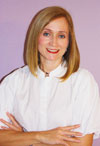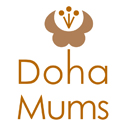I was a month shy of 40 when I had my second child. My girlfriend, also an older mom said: “At least you can say you had all of your children before you turned 40.”Another older mom girlfriend relays the story of how her 8 year old son wished she was younger like his friend’s mom (only 29) who bought him Black Ops (a reportedly violent game) for his Xbox. The medical community terms us moms (over 35) Advanced Maternal Age (AMA).
Though it seems as if the stigma of having a child when you are older never ends, the reality is that more and more older women are having children. The number of women over 40 having babies has tripled in the U.K. in the last two decades (from 9336 to 26,976).
Some women are busy with higher education. Or in my case, I was so sleep deprived during my medical training that I was never an appealing date choice– falling asleep at dinner, in movies and once while standing up. Some women don’t have a choice of when they can have children. Perhaps they have not found the right partner or perhaps they are infertile. (This is not to say a woman needs a partner to have a child, plenty of women have opted to be single moms by choice.)
Old vs. Young Moms
When I polled both young and older moms, here is what I found. The younger moms had more energy and more patience dealing with their children’s noisiness and abounding energy. They also were more willing to be silly in public pulling faces and jumping on the trampolines in the play zones (please don’t tell anyone, I was kicked off one such trampoline just last month) while older moms had more patience overall.
They older moms felt like they had better financial stability, and had had time to spend on themselves as individuals and as a couple prior to having children. One mom, an orthopedic hand surgeon in the USA says “No, I do not wish that I had my children younger. It was important for me to finish training before I could consider such an undertaking! Also, I got to have plenty of personal adult time which younger moms may miss out on.”
A couple moms who had children both in their 20’s and then again in their late 30’s said they were more cognizant of the social pressures (in their 30’s) which caused them to worry: about their child’s development, about what they did or didn’t eat during pregnancy, and about whether they were being the “super mom”. These moms also noted less energy and being less able to tolerate sleepless nights with the children they had later in life.
Medical Issues with Advanced Maternal Age
Several moms found it painful to hear comments about increasing infertility as you age when they were not moms by choice but by circumstance. Yes, it is true that your infertility drops as you age. And unfortunately, you are most fertile in your teens when you least want children. Your chance of getting pregnant at age 30 is 20% per month whereas by age 40 this drops to five percent. These statistics were highlighted only so that women were aware of them not to cause distress for women who didn’t have children.
Medically speaking there is a higher incidence of both genetic (chromosomal ) and non-chromosomal defects, gestational diabetes, high blood pressure and premature birth to name a few. The good news is that there are plenty of women who have healthy pregnancies and healthy babies after the age of 35. But, it is even more important to seek pre-natal care to ensure this healthiness.
Whether you are a younger or an older mom, have a choice or don’t have a choice of when you can have children, enjoy motherhood to the fullest. Our children are only young once. Don’t hurry them to grow up. Savor every moment. To your child, you are as young as you act.
Medical Questions about Advanced Maternal Age
1. What Screening Tests Should a pregnant Women over 35 have?
The American College of Obstetricians and Gynecologists recommends that all pregnant women be offered screening tests to assess their risk of having a baby with a birth defect or genetic disorder regardless of age. In addition, For pregnant women ?35 years of age at the estimated date of delivery, a detailed second trimester ultrasound at 18 to 20 weeks of gestation is suggested.
First trimester screening tests include the following blood tests: (Pregnancy-associated plasma protein-A (PAPP-A) Human chorionic gonadotropin (hCG) along with an ultrasound exam to measure nuchal thickness (the back of the neck) of the fetus. An increase in this space may be a sign of Down’s syndrome, trisomy 18, or other chromosomal problems
Second trimester tests include a Multiple marker screen where 3-4 of the following hormones are measured: Alpha-fetoprotein (AFP), Estriol, Human chorionic gonadotropin (hcg), and Inhibin-A.
These non-invasive tests cannot tell you whether your baby has a defect, they only tell you your actual risk against women of the same age.
If these above screening tests raise concern, then a woman can be offered invasive testing with either CVS (chorionic villus sampling) or Amniocentesis.
2. What medical conditions is a pregnant woman over the age of 35 at risk of?
Ectopic pregnancy, spontaneous abortion, fetal chromosomal abnormalities, some congenital anomalies, placenta previa, gestational diabetes, preeclampsia, and cesarean delivery. Such complications may, in turn, result in preterm birth.
3. Should all women who deliver for the first time have an episiotomy.
While in the past, episiotomies were done more routinely to make repair easier, improve wound healing and reduce the extension of tears, the American College of Obstetricians and Gynecologists recommend against the routine use of episiotomy (in spontaneous and instrumental deliveries) because of the lack of evidence to support routine use.
Parenting Tips
- During the bewitching hour, the hour before dinner when kids are tired and hungry and more apt to act out, implement a fun routine or activity. We have a “dance party” where we crank up the music (usually Black Eyed Peas) and dance in the living room until we laugh.
- Make going upstairs to bed fun. We sing the “Grand Ole Duke of York” all the way up the stairs, acting out the song as we walk. Which child wants to be excluded from the fun?
- When your children are young it is easy to overdo it by taking them everywhere and doing everything. Limit your activities away from the home to every other day. That way you can have a day of rest at home in between.
























I could so relate to this article.
My mom had me when she was 23. We have always had an enviable relationship and when I was off at college, She was in her early 40s. Her mortgage was paid off, children off at college, financially stable, healthy and fit, and living the life of Riley. She and my dad travelled, did spontaneious things, worked because they wanted to and enjoyed life.
I had my son in my late thirties. I had a good 15 years to travel, do spontaneous things and enjoy my husband. Now I love being a mom. It has been a great transition in life.
What I am trying to say is, there is an upside to both. If you want to be a mom, there is no better time than the present.
Thanks Julie for visiting my site and for your comment. So true and a great reminder, that there is no better time than the present!
Hi Rajka, Sometimes I wish I had started younger, but at the same time I really enjoyed the freedom of my 20’s. And I don’t think I would have been the best mom in my 20’s. Age brings wisdom, perspective, and (I think) patience. So cheers to those who have the courage to take the great challenge of motherhood on both early in life and a little bit later!
Sometimes I wish I had started younger, but at the same time I really enjoyed the freedom of my 20’s. And I don’t think I would have been the best mom in my 20’s. Age brings wisdom, perspective, and (I think) patience. So cheers to those who have the courage to take the great challenge of motherhood on both early in life and a little bit later! 
I always thought my mom was “old” to have me at 36…until I had my 3rd at 38!
Hi Allison!
Isn’t that hysterical that mom’s over 30 were considered old! You bring up a great point that we should honor those that have had the courage to embark on motherhood regardless of age!
Thanks for visiting the site! Hope you enjoy future posts!
Rajka